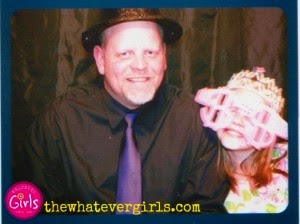
I have seen several reading lists recently and it made me think about the concept itself. Kids can be very quick to get “bored” in the summer. Personally, I hate this term; it seems like a weak excuse to put the onus on another to entertain you when you can’t bother to find something to do. Also, after the summer teachers must spend the beginning of a school year refreshing students memories on the previous year’s lessons.
So a reading list can provide ideas for things to do, it can serve as a source of entertainment, and it can help keep the brain active so its easier to get back into school after Summer break.
I see the reading list as an opportunity to catch up on reading goals. I had many books I wished to read either because I had heard good things about them or because I was familiar with the subject material or the author. A big one for me is any book which is referenced in other media or in pop culture; I want to know where it comes from so I can appreciate the reference better.
So I thought I would create a short list of books I thought everyone should read at least once. These are the books that really affected me, or gave me a comfortable impression, or a book I continue to reread once a year because they are just that entertaining. The list is almost entirely fantasy, but that is a lot of what I read.
World War Z, Max Brooks
This one drew me in because it was about zombies, but what captivated me was the depth of real human nature and engaging political analysis (not as dry as it may sound.) This one could serve as a documentary of any global natural disaster.
Red Sands, Paul B. Thompson and Tonya R. Carter
Arabian themed fantasy tale; light toned and fun. I have replaced this title in my library three times and I just can't explain adequately why this book draws me to read it at least once a year.
Red Sands, Paul B. Thompson and Tonya R. Carter
Arabian themed fantasy tale; light toned and fun. I have replaced this title in my library three times and I just can't explain adequately why this book draws me to read it at least once a year.
Empire Strikes Back, Donald F Glut
Even though my favorite movie is Return of the Jedi, this novelization is very well written; Don Glut paints pictures with language.
The Hitchhiker’s Guide to the Galaxy, Douglas Adams
An incredibly funny classic of Science Fiction, this has been translated to live action at least twice, but you have to read it to really appreciate the humor.
Coraline, Neil Gaiman
I used this novella as my read aloud lesson when I student-taught 6th Grade. It is captivating, thrilling and fun.
Dragonlance Chronicles, Margaret Weis and Tracy Hickman
A post-apocalyptic fantasy world with governments and religions in upheaval, idealistic characters (some of which actually die; the second book is a tearful read) and a very touching sense of humor.
Lord of the Rings, J.R.R. Tolkien
THE epic fantasy series. If you have only seen the movies, you are missing some amazing language, mythology and story structure.
Belgariad, David Eddings
A five book, epic fantasy “trilogy;” this series actually covers the growth of its hero from child to man, contains fantasy “races” that are human and distinguished by their cultures (not bearded, short or pointy-eared), it also has a unique magic philosophy that really sets it apart.
The Sleeping Dragon, Joel Rosenberg
A fantasy story that challenges many of the cliches and has many mature topics regarding social behaviors.
As I said, it is a short list. I may add to it from time to time.
Better yet, give me some suggestions in the comments below! What books really affected you? Tell me why, if you want, or just give me a title and/or author. Thanks!




